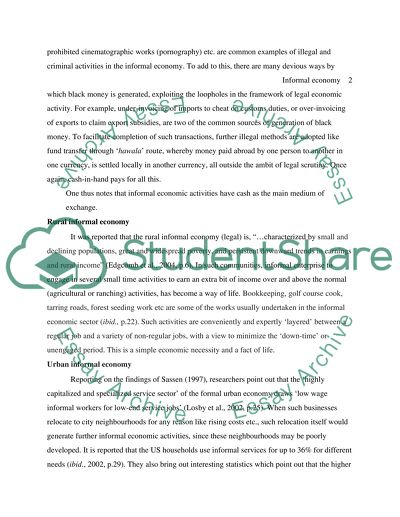Cite this document
(“Analyze, using examples, the argument that an informal economy will Essay”, n.d.)
Analyze, using examples, the argument that an informal economy will Essay. Retrieved from https://studentshare.org/miscellaneous/1539855-analyze-using-examples-the-argument-that-an-informal-economy-will-always-exist-in-any-society-in-which-there-is-a-formal-economy
Analyze, using examples, the argument that an informal economy will Essay. Retrieved from https://studentshare.org/miscellaneous/1539855-analyze-using-examples-the-argument-that-an-informal-economy-will-always-exist-in-any-society-in-which-there-is-a-formal-economy
(Analyze, Using Examples, the Argument That an Informal Economy Will Essay)
Analyze, Using Examples, the Argument That an Informal Economy Will Essay. https://studentshare.org/miscellaneous/1539855-analyze-using-examples-the-argument-that-an-informal-economy-will-always-exist-in-any-society-in-which-there-is-a-formal-economy.
Analyze, Using Examples, the Argument That an Informal Economy Will Essay. https://studentshare.org/miscellaneous/1539855-analyze-using-examples-the-argument-that-an-informal-economy-will-always-exist-in-any-society-in-which-there-is-a-formal-economy.
“Analyze, Using Examples, the Argument That an Informal Economy Will Essay”, n.d. https://studentshare.org/miscellaneous/1539855-analyze-using-examples-the-argument-that-an-informal-economy-will-always-exist-in-any-society-in-which-there-is-a-formal-economy.


